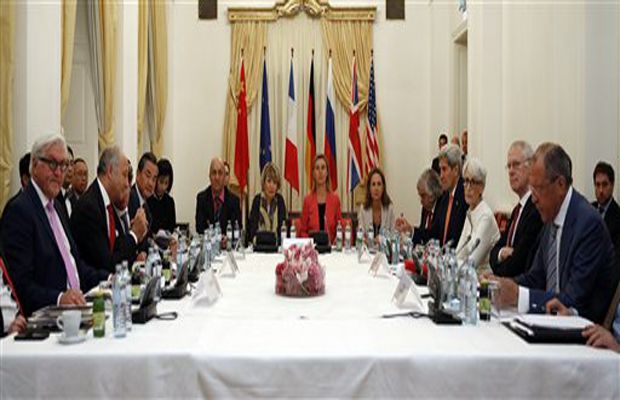By Olisemeka Obeche

Oil prices tumbled more than $1 on Tuesday after Iran and six global powers reached a landmark nuclear deal that would see an easing of sanctions against Tehran and a gradual increase in its oil exports.
The agreement, which capped more than a decade of on-off talks, was hailed by Iranian and Western diplomats as a “historic moment” that opens the way to a new phase in international relations.
Under the deal, sanctions imposed by the United States, European Union and United Nations would be lifted in exchange for curbs on Iran’s nuclear programme.
There were no immediate details on how sanctions would be eased on oil.
Front-month Brent crude futures LCOc1 had dropped $1.15 to $56.70 a barrel by 0930 GMT. U.S. crude CLc1 was trading down $1.05 at $51.15 per barrel.
Analysts say it would take Iran many months to fully ramp up its export capacity following any easing of sanctions. But even a modest initial increase would be enough to pull international oil prices down further as the market is already producing around 2.5 million barrels per day above demand.
“Even with a historic deal, oil from Iran will take time to return, and will not be before next year, most likely the second half of 2016,” Amrita Sen, chief oil analyst at London-based consultancy Energy Aspects said.
“But given how oversupplied the market is with Saudi output at record highs, the mere prospect of new oil will be bearish for sentiment.”
Sanctions on the Islamic Republic have almost halved its exports to a little over 1 million barrels per day. A deal could see Iran increase its oil exports by up to 60 percent within a year.
[divider]


